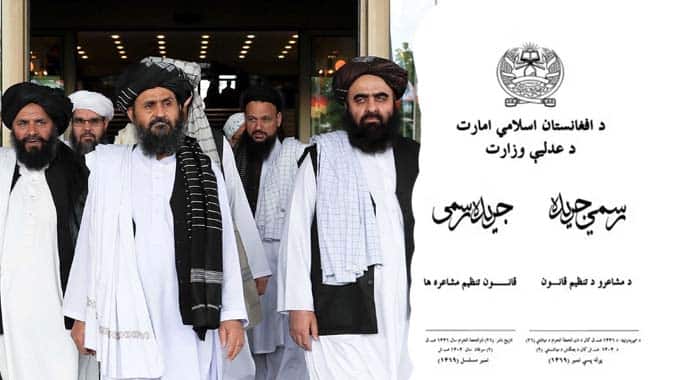Taliban’s supreme leader Hibatullah Akhundzada has approved a new law that bans poets from criticising his decrees or composing love poetry, further tightening restrictions on free expression in Afghanistan. The Ministry of Justice announced the law on Saturday, which was published in the official gazette, detailing 13 articles that regulate poetry gatherings.
The new legislation specifically prohibits any form of criticism of Akhundzada’s orders and decisions. It also bans poems praising “boys and girls” or encouraging friendships between them. Additionally, the law mandates that poetry must be free of “worldly love, improper desires, and inappropriate emotions.”
The Ministry of Information and Culture is tasked with enforcing the law. Oversight committees will be established in Kabul and provincial centres, each including representatives from the ministry, the Taliban’s virtue and vice authority, and the Ulema Council. These committees will be responsible for vetting poetry and speeches to ensure compliance with the new regulations.
Violators, including poets, speakers, and event organisers, will face punishments “in accordance with Sharia,” according to the ministry.
The law also declares feminism, communism, democracy, and nationalism as “un-Islamic,” prohibiting poets from referring to these ideologies in their work. The preamble to the law instructs poets to use their work to defend Islam and interpret Sharia law. Notably, the provisions are addressed only to “brother poets,” effectively excluding women from participation.
This move follows previous restrictions on literary events. In June, Akhundzada issued directives for poetry events after the Taliban cancelled festivals in Parwan and Nangarhar provinces and arrested poets accused of writing critical verses.
Human rights organisations have condemned the law, saying it marks a return to the Taliban’s hard-line cultural policies of the 1990s. They view it as part of a broader effort to curb civil liberties, silence critics, and impose the group’s interpretation of Islam on Afghan society.





